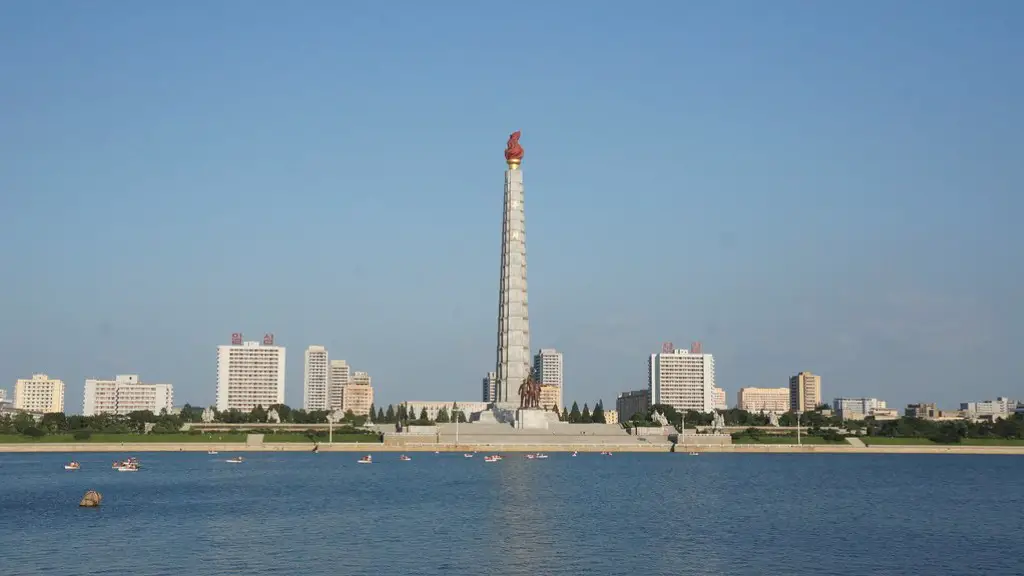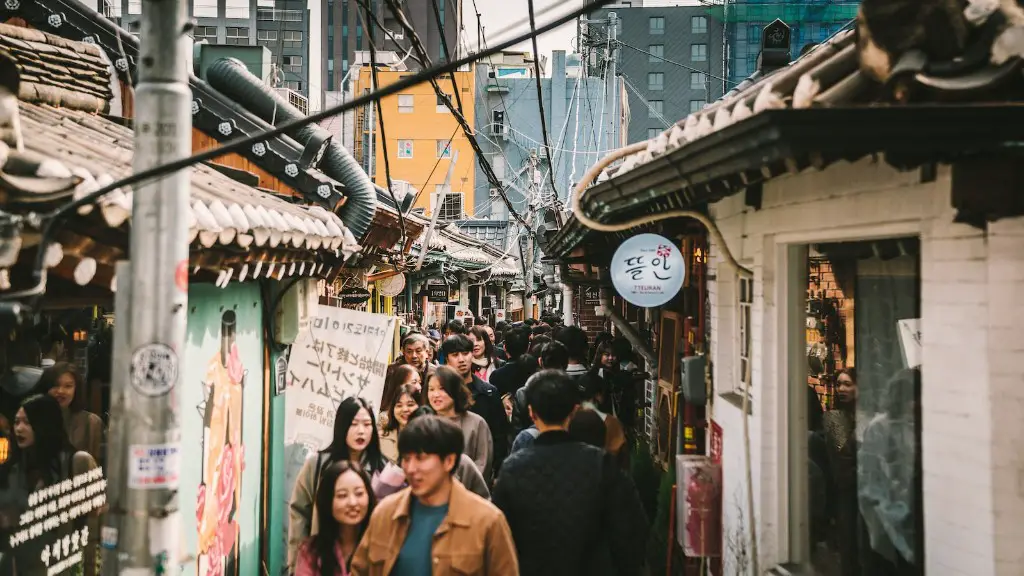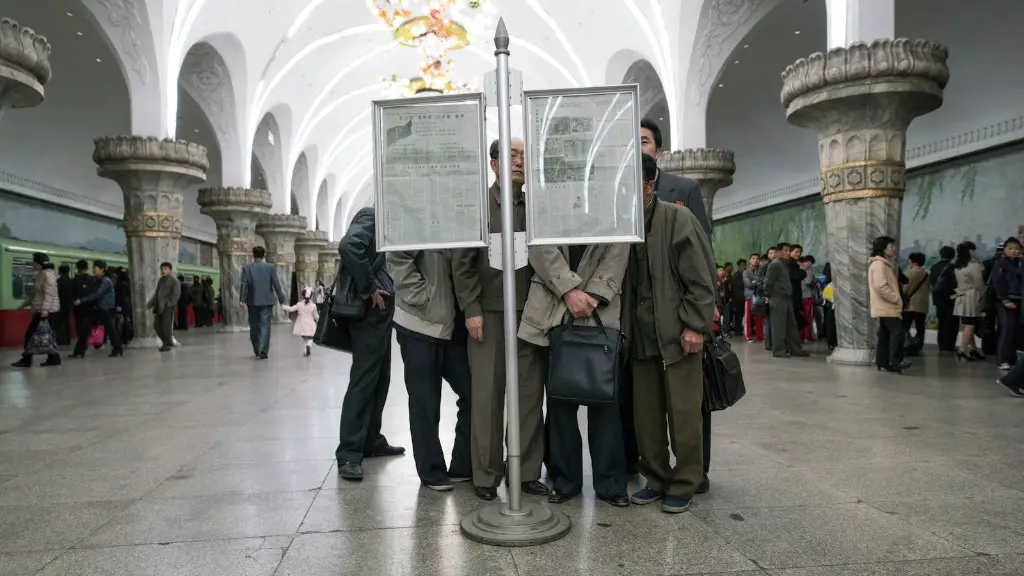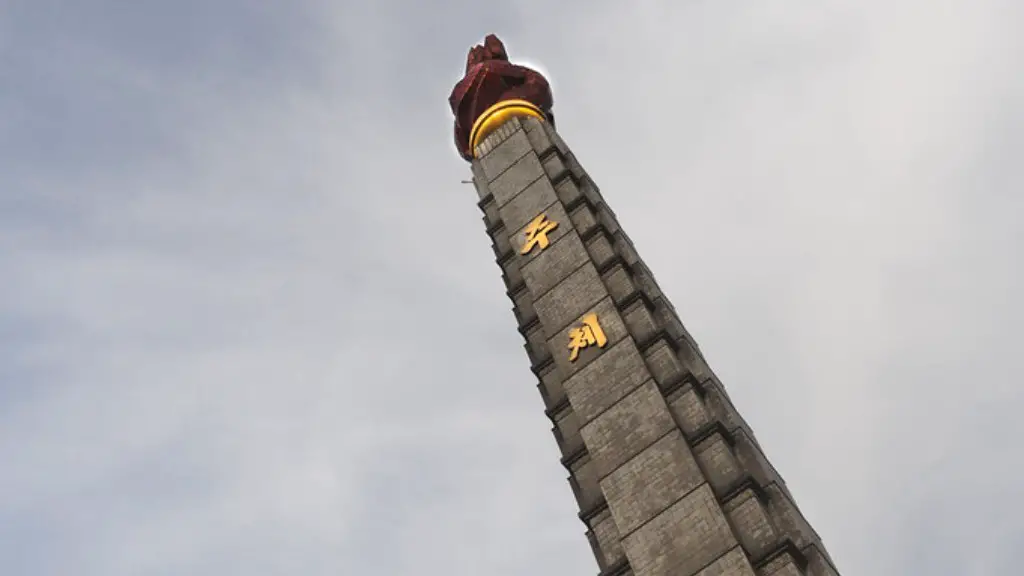North Korea has one of the most restrictive and enigmatic political and economic systems in the world. Its economic system is a combination of communism and economic central planning, with a command economy that has led to a long tradition of poverty and limited access to necessities and necessities. North Korea’s economic system has created a closed economy with little contact with the outside world and tight government control over its citizens.
North Korea is under the authority of the Communist Workers’ Party, which has ruled the country since 1948. The government has been highly centralized for most of its history, providing little space for any sort of private enterprise or entrepreneurship. The state owns and operates most of the country’s land, resources, and production. North Korea has an expansive bureaucracy, with the government issuing detailed monthly quotas for food production and other economic output. The government also sets strict regulations on what citizens can buy and sell, and it strictly controls access to foreign currency.
The North Korean economy relies heavily on exports, with the majority of exports coming from ammunitions, minerals, and seafood. The economy also relies heavily on aid from China, the country’s main trading partner and the source of most of the country’s hard currency. North Korea does have an internal currency, the Korean won, which is not officially traded with any other currency.
The economy of North Korea is also known for its lack of transparency, with a lack of reliable economic data. In recent years, the United Nations has expressed its concern over the economic mismanagement of the North Korean government. The UN has expressed its concern over the lack of access to basic necessities, such as food and medicine, for a large portion of the population.
Experts have argued that North Korea could potentially benefit from economic and political liberalization, in order to increase foreign investment, encourage entrepreneurship and open up the country to international trade. However, the country’s highly authoritarian regime and its reluctance to liberalize the economy pose considerable challenges to any potential reforms. North Korea’s economic system has been criticized for its lack of accountability, transparency, and economic sustainability.
Sanctions and Human Rights Abuses
The North Korean government’s human rights abuses have been well documented, and the United Nations has imposed multiple rounds of economic sanctions in response to the regime’s abuses. The sanctions have further crippled North Korea’s economy, leading to shortages of food and medical supplies for citizens. The sanctions have also created serious impediments for potential foreign investors.
North Korea is also facing new sanctions imposed by the United States in response to the government’s nuclear weapons program and its continued involvement in human rights violations. The sanctions are meant to pressure the North Korean government to abandon its nuclear ambitions and comply with international human rights standards. The sanctions have significantly increased the economic pressure on North Korea, and the economic ramifications are becoming increasingly apparent.
Despite its apparent economic difficulties, the North Korean government has shown little interest in economic reform. The government has continued to prioritize the military and the country’s nuclear weapons program over economic development, which has further isolated the nation from the global economy and made it difficult for the economy to modernize.
Opportunities for Prosperity
North Korea’s economic prospects remain uncertain, but there are opportunities for improvement. Experts have argued that the country could potentially benefit from economic reforms, such as liberalizing the economy and encouraging foreign investment.
For reform to be successful, it will require the cooperation of both North Korean and international actors. North Korea would need to relax its control over the economy and open up to foreign investors. There also needs to be an international response, with foreign governments providing economic aid and technical assistance.
The international community must also work to address the human rights violations committed by the North Korean government. The UN must continue to hold North Korea accountable for its human rights abuses, while encouraging the government to pursue economic liberalization and reforms.
The Role of China
China has long been North Korea’s economic lifeline, and the Chinese government has provided the North Korean regime with economic assistance and diplomatic support. China is North Korea’s largest trading partner, and experts have argued that China could play an important role in negotiating with the North Korean government to pursue economic reforms.
China might also have an interest in pursuing economic liberalization in North Korea, as it could potentially open up investment opportunities for Chinese businesses. China could also potentially use its influence to push North Korea toward economic reforms, which could ultimately benefit both countries.
The Chinese government has called on North Korea to pursue economic reform, and in recent years it has made some attempts to liberalize the North Korean economy. However, these efforts have been limited, and the Chinese government has largely used its economic leverage to pressure the North Korean government to adhere to its own domestic and foreign policy goals.
The People of North Korea
Most importantly, any real economic reform in North Korea must be accompanied by an increase in economic opportunities and improved living standards for its citizens. North Korea’s economic system has had a devastating impact on the population, and the government has been widely criticized for its failure to provide its citizens with basic necessities.
In recent years, there have been some signs that the North Korean government is beginning to recognize the need for economic reform. The government has started to introduce limited reforms, such as opening up markets and allowing some citizens to start small businesses.
However, North Korea’s economic system remains limited and its citizens largely remain cut off from the global economy. Until the people of North Korea are given greater access to economic opportunities, the country’s economic prospects remain uncertain.
International Pressure
The international community must continue to pressure North Korea to pursue economic reform and to adhere to international human rights standards. The UN must continue to hold North Korea accountable for its human rights abuses, while pressuring the government to pursue economic liberalization and reforms. The international community must also provide North Korea with economic aid and technical assistance to help it develop its economy and ensure the wellbeing of its citizens.
The international community must also continue to pressure China to use its economic leverage to push North Korea towards economic reforms. China should be encouraged to use its influence to negotiate with North Korea for economic liberalization, which could potentially benefit both countries.
Ultimately, North Korea’s economic system is one of the most enigmatic and restrictive in the world, and until real reform is pursued, the economic prospects of the country remain uncertain. However, there is hope that the North Korean government will recognize the need for economic reform, and international pressure is essential in encouraging this process.




